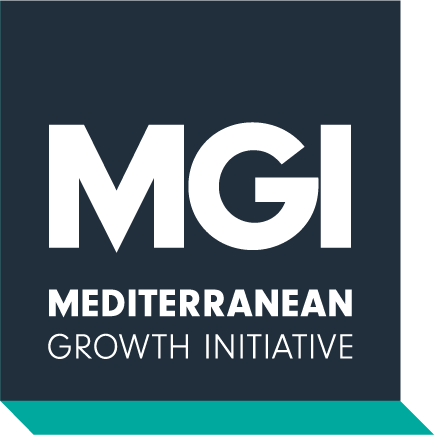MGI Weekly round-up | 3 November 2017
Stories MGI has been tracking this week:
- IMF sees a “broad-based” recovery in Egypt
- Tunisia asks banks to stop financing the imports of non-essential goods
- Morocco ranks first in North Africa for doing business
And as always, we feature content from the MGI data and analysis platform, a summary of the week’s key statistical releases, and a look to the week ahead in data. In this newsletter, we use the World Development Indicators database available on the MGI platform to look at the historical evolution on Imports (as % of GDP) in Tunisia.
The IMF sees a “broad-based” recovery in Egypt
Egypt’s economy grew exceptionally strongly in the first two quarters of 2017. This was a surprise for some economists who predicted slower growth given the high interest rates and rising consumer prices. According to Jihad Azour, head of the IMF’s Middle East and Central Africa Department, this constitutes a “broad-based” recovery. “The reemergence of growth as we see it is broad-based; various sectors of the economy are benefiting from it including export, including tourism. Remittances are improving as well as other traditional sectors”, the official said in an interview in Dubai.
Egypt removed most currency restrictions a year ago causing a strong currency devaluation which has made Egyptian exports cheaper. Non-oil exports and tourism increased by 16% in the fiscal year ending June, Bloomberg reports.
Tunisia asks banks to stop financing the imports of non-essential goods
Tunisia has asked its banks to stop lending to importers of about 220 goods deemed as non-essential. The list of products includes fish, tropical fruits, alcoholic beverages, cosmetics products, perfumes and air conditioners. The country is trying to control its increasing trade deficit and its declining foreign-exchange reserves. According to central bank data, foreign currency reserves stood at about $5.1 billion in October 31, enough to cover just 96 days of imports.
Tunisia has struggled to revive its economy since the 2011 revolt that caused the fall of the long-standing dictator Zine El-Abedine Ben Ali.
Morocco ranks first in North Africa for doing business
Morocco ranked first in North Africa for doing business in the latest Doing Business reportof the World Bank. The country occupied the 69th position among 190 nations, surpassing Tunisia, Egypt and Algeria which ranked 88th, 128th, and 166th respectively. Among African countries, Morocco maintained its position in the top three, surpassed only by Mauritius (25th) and Rwanda (41st).
The Ease of Doing Business index ranks 190 countries based on ten indicators: starting a business, dealing with construction permits, getting electricity, registering property, getting credit, protecting minority investors, paying taxes, trading across borders, enforcing contracts and resolving insolvency.
Featured content from the MGI data and analysis portal
We use the WB section of the MGI platform to examine the historical evolution of imports of goods and services (as % of GDP) in Tunisia.
In 1965, imports represented only 14% of the country’s GDP. However, over the next fifteen years this indicator displayed a strong upward trend, hitting a value of around 50% in 1981. During the period 1982-2006 (with the exception of four years) imports fluctuated between 40% and 50% of GDP, and have been higher than 50% of GDP in each year since.
The week in data
Highlights from national statistics releases tracked by MGI this week include:
- Spain’s Real GDP (flash estimate) grew 0.8% QoQ and 3.1% YoY in 2017Q3
- Spain's CPI increased 1.6% (YoY) in October 2017 (flash estimate)
- France’s Real GDP grows 0.5% QoQ in the 3rd quarter of 2017 (first estimate)
- Italy’s employment increased 0.1% (MoM) in September 2017. Unemployment rate stood at 11.1%
- Consumer prices in Cyprus increased 0.1% (YoY) in October 2017
Looking ahead
In the coming week, we expect IPI, inflation rate and balance of trade data for several Mediterranean countries. MGI’s complete data release schedule can be viewed at our release calendar section.
Monday 6 November, 2017:
- Palestinian Territories IPI for September
- Spain Services PMI for October
- France Services and Composite PMI for October, final estimate
- Montenegro retail sales for October
- Malta IPI for September
- Tunisia inflation rate for October
Tuesday 7 November, 2017:
- France budget balance and retail sales for September
- Greece balance of trade for September
- Malta retail sales for September
- Israel business confidence and foreign exchange reserves for October
- Turkey treasury cash balance for October
Wednesday 8 November, 2017:
- Turkey IPI and retail sales for September
- France balance of trade and current account for September
- Spain IPI for September
- Croatia balance of trade for September
- Albania inflation rate for October
- Israel budget balance for October
Thursday 9 November, 2017:
- Palestinian Territories unemployment rate and employment for 2017Q3
- Slovenia balance of trade for September
- Cyprus balance of trade for September
- Greece IPI for September
- Greece unemployment rate and employment for August
- Greece domestic and harmonized inflation rate for October
- Malta balance of trade for October
Friday 10 November, 2017:
- Egypt inflation rate and core inflation rate for October
- France IPI for September and payroll employment for 2017Q3
- Italy IPI for September and 12-month BOT auction
- Slovenia IPI for September
- Tunisia balance of trade for October
- Israel tourist arrivals and money supply (M1) for October
- Montenegro inflation rate for October

